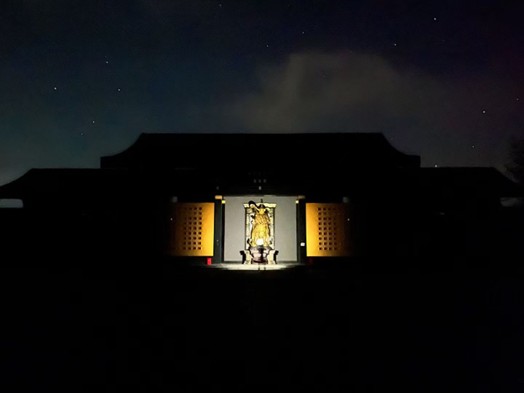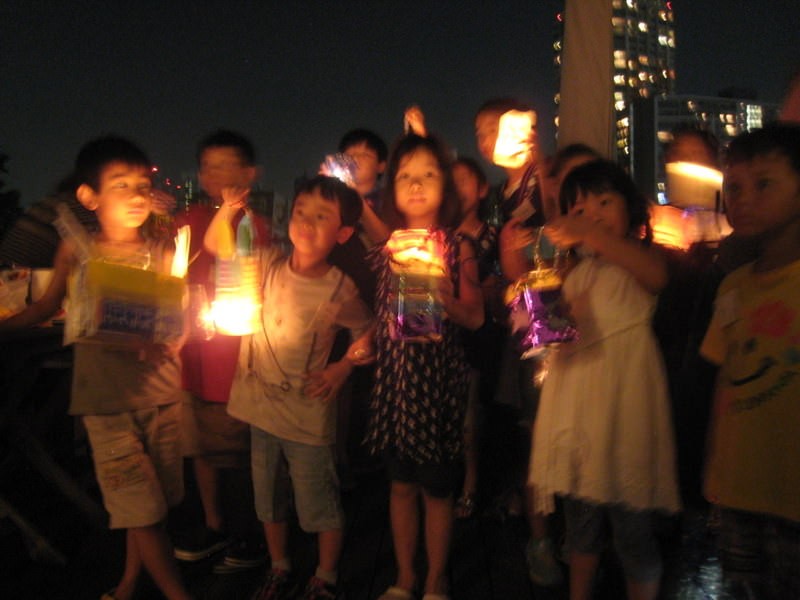Interviewer: Lin Huangyi (Akira)

Akira:Mende-san, today I’d like to talk about the cost of losing dark sky. Perhaps we can continue our chat starting from the elevator as a warm-up to recall the value of starlight. What’s your most memorable experience of a starry night? Since we’re from different generations, I imagine our impressions might differ.
Mende:One of my most unforgettable memories was in Annapurna, Nepal, at a mountain campsite. We were staying in tents, and one midnight I stepped outside—the galaxy was so close it felt like I could reach out and touch it. Everything was silent and dark, but the stars were overwhelming. I don’t know why, but tears came to my eyes.
Akira:That sounds incredible. Maybe every human being, no matter what era or area they live in, will cry at this scene. It is kind of echo just like deep inside our subconscious. Once you’ve had that kind of moment, it never leaves you.
For me, this happened during university in Chongqing. We visited the Jingxin Buddhist Temple (which literally means “Peaceful Mind”) on a mountain. This temple was part of a lighting project designed by BPI.
When we got back to the hotel, there was a sudden blackout—the electricity system had broken down, and everything went dark for hours. At that moment, my classmates and I decided to do something crazy. We went back to the temple again, using only our phone flashlights.
It was magical: the architecture, the statues, and above us, the stars. That was the first time I realized how wonderful darkness could be.
Mende:Was that a university workshop?
Akira:Yes, it really felt like an adventure. We could even see a faint trace of the Milky Way, which was incredible. It made me realize that most people of my generation—especially those who grew up in cities—have never truly seen a starry sky.
Last time I went out to see Quadrantids meteor shower, I even caught a shooting star on camera. Everyone around shouted “Wow!” whenever a shooting star streaked across the sky. I guess most of them were like me —seeing a shooting star for the very first time with their own eyes.
Mende:Yes, some nights are filled with meteors like that. Star-watching is always better in winter—the air is drier and clearer. In winter, both sunsets and starry skies are more beautiful.
One more unforgettable memory: seeing the aurora in Alaska. We were on a mountain slope, and the temperature was about minus 35 degrees Celsius. It was an incredibly cold night. I had taken five students with me. Once we were properly geared up, all we had to do was quietly wait for an hour or two, just looking up at the sky.
Eventually, a breathtaking light appeared in the sky. It looked as if two dragons were crossing right above our heads. I don’t think I will ever see a spectacle like that again.
Akira:That must have been amazing. Such experiences are real treasures, especially today, when we urban dwellers rarely get to see a starry night.
Mende:As a lighting designer, I constantly learn from nature. Starlight is delicate, sometimes showing subtle differences in star color—it truly needs darkness to be seen. It’s completely different from artificial illumination.
Akira:Yes, exactly. In cities, we mostly see clouds glowing from LED light pollution, not the stars themselves.
Mende:You showed me that photo of the temple interior—it was well lit, and yet the stars were still visible outside. That balance is important. Organizations like the International Dark-Sky Association remind us to design lighting without polluting the sky.
Akira:I agree. It’s our responsibility to design beauty while simultaneously reducing unnecessary brightness and preventing light from escaping into the sky. Designers should understand this—it may not bring direct economic benefit, but it preserves great treasures for all human beings.
Mende:Exactly. Watching stars evokes the same emotion in me as watching fireflies. I saw fireflies in Malaysia—the trees were glowing like natural Christmas lights. They were different from the fireflies in Japan, but I can’t quite articulate why. These tiny lights truly teach us how subtle brightness can move people.
Akira:Yes! When I was a child, I used to catch fireflies, observe them, and then release them when I went back to my hometown. They certainly felt magical.
And how about blackouts? Do you enjoy total darkness?
Mende:When I was a child, we used to have blackouts sometimes. But nowadays, we don’t usually experience any blackouts.
The biggest one occurred after the 2011 earthquake and tsunami in Japan, often referred to as 3/11, when even the nuclear plant was damaged. Even Tokyo went dark for a whole night.
At that time, I decided to observe and record what happened during the blackout with some of my students. The primary grid power was entirely lost, even though some emergency lighting units were dimly lit. People were profoundly shocked by the city’s sudden transformation, yet this event served as the genesis of the ‘Disaster Recovery Project’ that followed.
Akira, have you ever been through a large-scale blackout?
Akira:It wasn’t an event as serious as a disaster, but once, when I was at high school, we had a power outage due to an electrical system accident. All the students were actually really excited by the different atmosphere it created.
When the power goes out, I feel like something primal is awakened inside us. It’s a sensation that takes us way back—maybe even to the time of our ape-like ancestors.
Mende:We have a similar event here called Candle Night. It takes place at least twice a year and actually originated in Canada. It was first proposed for people around the world to enjoy candlelight and experience how we can create a cozy living space without electricity.
So I try to unplug everything sometimes, but it’s not easy to adjust. We even invited some commercial shops in Omotesando—a very elegant shopping area in Tokyo—to turn off their lights for half an hour or an hour, just to enjoy the natural light. At first, people found it quite interesting, but in the end, they usually couldn’t keep it going and turned the lights back on after a while.
Akira:Indeed. Although artificial light has existed for only about two hundred years—and our bodies haven’t fully adapted to strong light after sunset—our generation can no longer live without it. Almost everyone knows their zodiac sign as part of popular culture, yet most people who spend their lives in cities may have never actually seen their own constellation shining in a truly dark sky.
The cost, perhaps, is that many of us have lost a certain resonance with nature—and, in a romantic sense, our connection to the astral world.
I truly enjoyed our conversation today; thank you very much.











